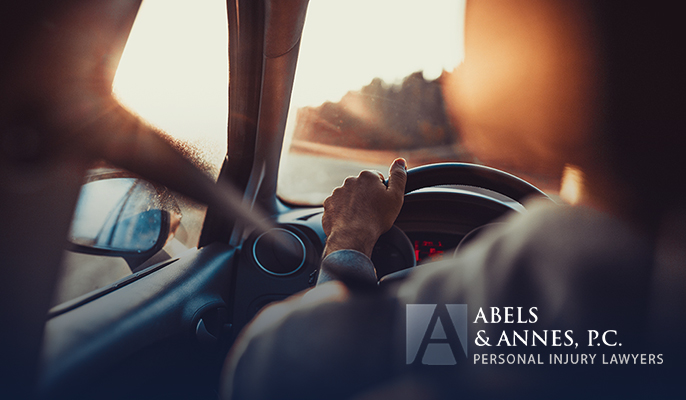Torts and Personal Injury Cases
Personal injury cases involve torts. The definition of this legal erm is an act or omission that harms or injures another and gives rise to legal liability. There are two types of torts:- Intentional actions
- Negligence
The Meaning of Negligence
Negligence is a word that gets used often. However, it is not a term many understand, especially in its legal sense. Negligence is a legal term of art that describes someone’s actions and how they fall short of what a reasonable and ordinary person would do under the circumstances. Negligence depends entirely on the facts and circumstances of the particular situation you faced. Before you get to the point where you can conclude and get a jury to go along with you - that someone was negligent, there is plenty of work to be done. Negligence comes from common law rules that courts have developed over hundreds of years. There is no one statute on the books that lays out negligence. Instead, every court throughout the country will use what appears to be the same test and principles in deciding whether an incident involved negligence, even though they may follow different legal precedents and understandings in doing so. Every court will apply what appears to be the same four-part test, but they will rely on years of precedent developed by state courts.The Test that Determines Whether Someone Was Negligent
The four-part test is often referred to by its shorthand of “duty, breach, injury, and causation.” These terms refer to each of the four elements that must be satisfied. In more detail, these are the things that you need to allege and prove to win a negligence case:- Someone owed you a duty of care - this is often the easiest element of the negligence test to establish. Many people owe others a duty of care, even if they will never meet them in their life. A driver owes a duty of care to those around them, just as doctors owe their patients. Observing this duty is a legal obligation. Individuals must engage in certain reasonable and careful conduct insofar as that conduct might affect someone else.
- Someone breached the duty of care - a person upholds the duty of care by behaving reasonably under the circumstances. The law asks what a reasonable and prudent person would have done under those same circumstances and compares that to what the defendant actually did. If the defendant’s conduct falls short of the reasonable person standard, the defendant may have breached the duty of care.
- You suffered an injury - this would include any injury, whether it is physical, emotional, or economic. All you need to show is that you suffered some harm and that the at-fault party’s conduct was the proximate and factual cause of your injury. To do so, you must prove that you would not have suffered the injury had it not been for the defendant’s actions. For example, if your injury reflected a pre-existing, the defendant will not be the proximate cause (although they can be liable if their actions worsened an existing injury. The injury did cause you to suffer damages for which financial compensation could make you whole. In negligence, you “take your plaintiff” as you find them. In other words, if the plaintiff has a condition that turns your single punch into a fatal injury, you will be liable for that injury.
Examples of Negligence in a Personal Injury Case
Let’s consider some examples to give you an idea of what courts might consider negligent. You have opportunities to be a victim of negligence practically from the time you get out of bed in the morning until you go back to that bed at night. In some circumstances, a negligent person could hurt when you sleep. Some of these things might represent negligence:- Causing a car accident by speeding
- A motorist hits a bicyclist because the driver looked down at a phone and drove while distracted.
- A property owner who fails to remedy a dangerous condition on the property or warn the public about it
- A tenant suffers an injury in a fire in an apartment building because of a hazard that someone else created.
- An intruder attacks a person because a property owner has failed to provide adequate security.
- A rideshare driver is in an accident injuring a passenger because the driver failed to check the blind spot when changing lanes.
- A trucking company does not look closely enough into a driver’s record or history before putting the driver behind the wheel.
You Must Prove Negligence to Receive Compensation
We have spoken about these examples as if what the defendant did was a given fact. That is never the case in a negligence lawsuit. To win your case, you must gather facts and evidence and prove your allegations. The burden of proof is on you as the claimant or plaintiff to prove that your case meets each element of the negligence test. The standard of proof required in a civil case is proof by a preponderance of the evidence, or in terms used by other courts, that your version of the incident is more likely than not the way it occurred. A preponderance of the evidence means that as you allege them, the facts are 51 percent or more likely to be the way it happened. In a criminal case, the standard is beyond a reasonable doubt. This standard is far higher than the test in a civil case.You Prove Negligence by Gathering Evidence
For any plaintiff, the challenge is getting to the point of proving your case. Of course, you have your version of what happened based on your own experience. You may have seen the other driver come into your lane right before the crash or noticed debris in your path right before you fell. However, you start with only your word, which will not be enough to prove someone else’s legal responsibility for your injuries. In the end, you must back up your words with evidence to make an effective claim or case. Personal injury evidence can be fleeting and easily lost. You have a limited time after your accident to make efforts to obtain evidence to prove your case. If you do not move quickly to gather evidence, it can be lost forever. As an injured accident victim, this is not something you can easily do yourself. Here are some pieces of evidence that could be helpful to persuade an insurance company or jury:- Photos of the accident scene, either from the time of the accident or very shortly afterward
- Witness statements from people who saw the accident
- Expert witness opinions from people who have the expertise necessary to reconstruct the accident; if your case is in medical malpractice, you must have medical expert testimony
- Police reports (able to be used in insurance claims, but they are not usually admissible evidence in a civil court case because they are considered hearsay in most states)
- Photos of the damage or the damaged car or parts
- Medical evidence to prove that you have suffered an injury
There Are Different Types of Negligence
Liability for personal injury claims arises out of negligence. Several types of negligence can arise in your personal injury case. Of course, garden variety negligence is present in most personal injury cases. This claim is another way of saying that the defendant was careless or did not exhibit the sort of behavior expected of the average person. Here are other types of negligence that could be present in your personal injury claim:- Gross negligence - ordinary negligence involves just a departure from the ordinary standard of care. In gross negligence, there is an extreme departure. The defendant has not just done something wrong, but they have done something very wrong. Many jurisdictions do not recognize the concept of gross negligence as such; in those states, you must claim reckless conduct or a willful disregard of the consequences. Your attorney will know which is appropriate in your state. These reckless situations represent the circumstances in which a jury may consider punitive damages against a defendant, which are usually rare in personal injury cases. Punitive damages, intended to punish the bad conduct and deter others from engaging in it, can greatly increase your financial award but are capped in certain cases in many jurisdictions. An example of gross negligence would be going far above the speed limit in a school zone.
- Vicarious negligence - someone could be liable for what someone or something else does. For example, parents can be liable for torts that their children committed, and dog owners could be responsible when their dog bites or attacks someone. The most common example of vicarious liability is when a plaintiff holds a company responsible for the acts of its employees. An employee is an agent of the company, and the two are considered the same in terms of liability. Therefore, you can sue the trucking company when you are struck and injured by a commercial truck driver. This lawsuit would provide you with the greatest possible financial recovery because corporate insurance coverage is usually for a higher amount than coverage limits on an individual policy. It may also help you get around the litigation limitations found in no-fault auto insurance jurisdictions.
The Plaintiff Can Be Negligent Too
Negligence cases do not just look at the actions of the defendant. A defendant or insurance company will try to turn the focus on what everyone was doing at the time of the accident. As a plaintiff, your actions will come under the microscope too. Certain types of negligence can disqualify a plaintiff from receiving financial compensation or limit the amount of compensation available to that plaintiff.- Contributory negligence - is one way of considering how plaintiffs’ actions may have contributed to their injuries. For example, the plaintiff may have been speeding at the time of the accident, meaning the plaintiff was also negligent. In a pure contributory negligence state, you will not recover if you were in any way responsible for your injury. Each state has different rules about whether a plaintiff who bears some of the responsibility for an accident can receive a recovery.
- Comparative negligence - the claimant or plaintiff may bear some of the blame for their injuries. For instance, they may not have been wearing a seatbelt in a car accident or a helmet in a motorcycle crash. Even though the defendant may have been speeding, the plaintiff may have worsened their injuries. Comparative negligence will reduce the amount of compensation that the plaintiff can receive by the percentage of their fault. As noted above, contributory negligence will, in similar circumstances, prohibit any recovery. Because your negligence can reduce or eliminate the other side’s liability, you should not be surprised if an insurance company tries to make the accident about you and what you did. While it seems like deflection, this is actually a legal strategy to save money. An attorney experienced in negligence cases will anticipate and know how to respond to this tactic. Nonetheless, you may need to defend yourself at the same time that you are trying to prove that someone else was negligent.
You Need an Attorney to Deal with the Insurance Company

Abels & Annes 100 N LaSalle St #1710 Chicago, IL 60602 (312) 924-7575



